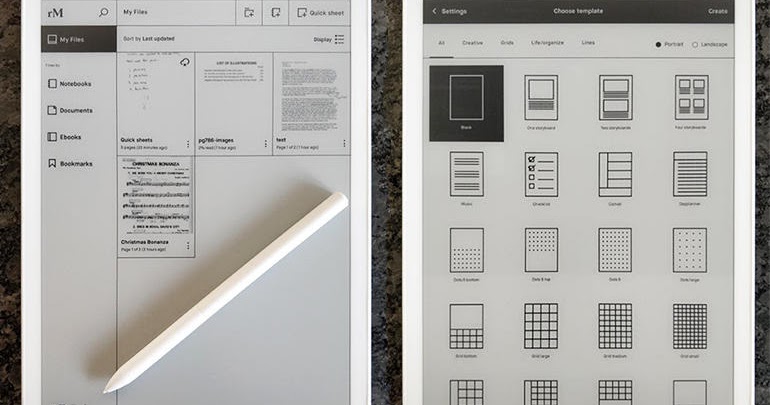
you can find all of those at the manufacturer's site. I'll spare you all the specification details - screen density, dimensions, weight, etc. The hardwareīefore I dive into the actual details - what precisely did I order? Apart from the tablet itself (there's just one model, no options/variants), I've picked the marker (more expensive version - with the eraser) and a folio case (opens like a book, covers full tablet). The production and delivery cycle has been delayed due to COVID-19 (by two months), but I've finally received my device, used it for few weeks, and can now provide you my initial review. So in the end I've decided to give it a go. And the price tag is much more wallet-friendly. According to its creators' declaration, the new edition is supposed to fix its predecessor's flaws. I was considering a purchase of the previous generation one, but in the end, I've passed because of the high price and moderately enthusiastic reviews on the Internet. Is it possible to have a solution with the advantages of paper but devoid of its flaws? In my quest to answer this question, I've decided to reach for an e-ink tablet named reMarkable 2.

inventorizing the notes properly (so they're searchable/navigable in scale) is not easy.full freedom of what you draw/write/scribble is fantastic, but sometimes it would save a lot of time to have a library of stencils/templates.digitizing it is a manual, cumbersome process.maximum flexibility (when it comes to notation & form - nothing is enforced).All of them have their pros, I still use some of them daily for specific purposes (Notion, Roam), but none of them has beaten the fundamental advantages of a thin sheet of paper: Friction-less apps like Bear, personal knowledge management tools like Notion, audio recorders like Otter, outlining tools like Workflowy, Zettelkasten-inspired research tools like Roam or Obsidian. I've tried various techniques of note-taking. crafting a visual structure that carries the supplementary information.

It's not only required to preserve the knowledge, but it helps you develop some valuable abilities & skills, e.g.: Over the years, I've learned not to rely solely on my (or anyone else's) memory but to create well structured, concise, and adequately labeled notes for future use.


 0 kommentar(er)
0 kommentar(er)
